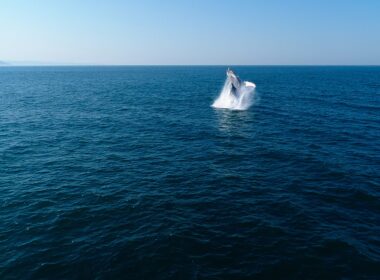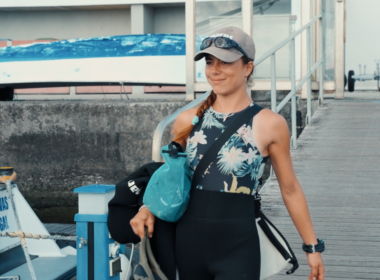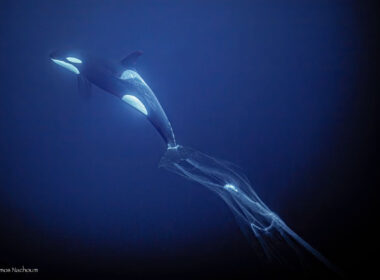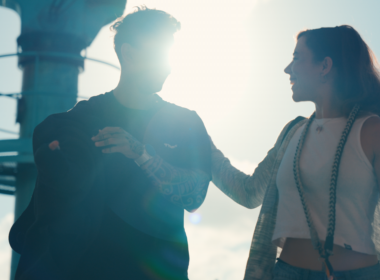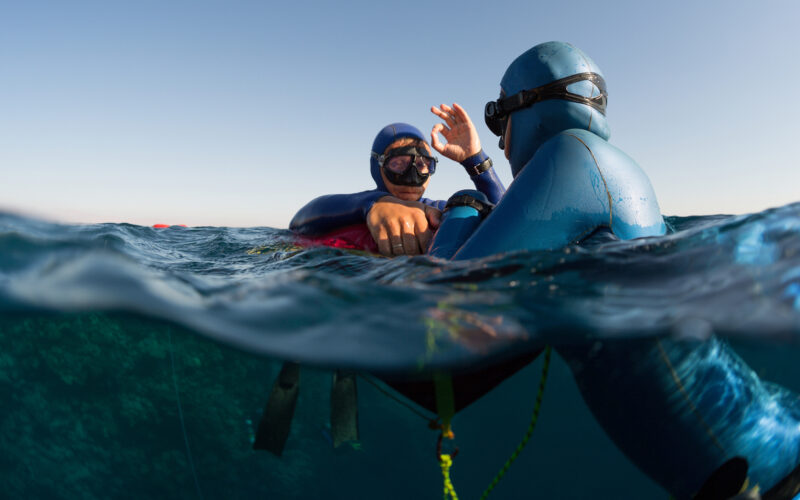Introduction to Freediving and Safety Awareness
The realm of freediving is witnessing a surge in popularity, with an increasing number of individuals exploring it as a new hobby or recreational pursuit. This trend not only introduces a fresh audience to the diving community but also offers seasoned scuba enthusiasts an alternative experience.
Who says freedivers don’t need diving insurance? Get covered today and dive with confidence.
Engaging in freediving recreationally generally presents minimal risks. However, it’s essential to follow specific guidelines and safety measures to ensure a secure freediving experience. Let’s take a look at these top 10 safety tips for freedivers:
Tip 1: Proper Training and Certification
In contrast to scuba diving, freediving demands minimal equipment, leading some individuals to assume they can simply acquire gear and commence freediving without prior instruction. While this may seem feasible initially, it can pose significant risks when unforeseen challenges arise. Many are unaware of the physiological impacts of pressure on the body and lack the knowledge to recognize potential dangers. Moreover, novice freedivers, lacking certification, might venture into the water alone, unaware of the risks.
By undergoing proper training and obtaining certification, you equip yourself with comprehensive knowledge of freediving techniques and safety protocols. This not only enhances your overall experience but also significantly reduces the likelihood of accidents.
Tip 2: Never Dive Alone
The number one rule you learn when freediving is to “never dive alone” and always follow the one up one down rule. This practice guarantees that there is always a companion at the surface, ready to assist in the event of an emergency. Whether it involves conducting a swift rescue operation or promptly alerting emergency personnel, having a diving buddy significantly reduces the risks associated with solo freediving. Additionally, companionship during dives not only enhances safety but also enriches the overall experience through shared moments of exploration and companionship.
Tip 3: Understand and Respect Your Limits
One of the most crucial aspects of freediving safety is to understand and respect your limitations in the water. While the allure of exploring the depths can be exhilarating, it’s imperative to recognize that every individual has unique physiological and psychological thresholds. Pushing beyond these boundaries can lead to fatigue, disorientation, and even dangerous situations such as blackouts or loss of consciousness underwater.
Freedivers should gauge their capabilities with self-awareness and humility, allowing them to make informed decisions about when to ascend and when to refrain from diving deeper. This involves recognizing signs of physical strain or discomfort and acknowledging when it’s time to surface and rest. Moreover, understanding and respecting your limits also means refraining from succumbing to peer pressure or attempting dives beyond your skill level.
Each dive should be a journey of self-discovery and growth, all while respecting the forces of nature and the inherent risks of underwater exploration.
Tip 4: Check and Maintain Equipment Regularly
Ensuring the reliability and functionality of your freediving equipment is paramount for a safe and enjoyable underwater experience. Before every dive, take the time to meticulously inspect all gear, including masks, snorkels, fins, wetsuits, weight belts, and any additional accessories.
Begin by examining the structural integrity of your equipment, checking for any signs of wear, tear, or damage. Pay close attention to straps, buckles, and seals, ensuring they are secure and free from defects. Verify that all fasteners are properly tightened and that no cracks or punctures are compromising the integrity of your gear.
Prioritize the cleanliness of your equipment, as dirt, salt residue, and debris can impede performance and lead to corrosion over time. Rinse all gear thoroughly with fresh water after each use and store it in a cool, dry place away from direct sunlight.
Regular maintenance and upkeep of your freediving equipment not only enhances its longevity, but safeguards it against unforeseen malfunctions or failures underwater. By investing time and effort into proper care and inspection, you can dive with confidence, knowing that your gear is reliable and ready for any aquatic adventure.
Tip 5: Monitor Weather Conditions
Weather significantly impacts our safety in the water. Certain regions experience abrupt weather shifts, sudden wind changes, or coastal cloud and rain influxes that can transform a seemingly safe dive site into a challenging environment. These conditions may cause disorientation or hinder your ability to navigate back to the entry point.
Before diving, it’s imperative to monitor weather forecasts diligently. Check conditions the night before and plan accordingly. Reassess the weather on the morning of the dive and exercise sound judgment. If you anticipate that adverse weather conditions could pose challenges, prioritize safety and reschedule the dive for another day. Trusting your instincts and staying informed about weather patterns are crucial steps in ensuring a safe diving experience.
Tip 6: Stay Hydrated and Well-Rested
This point can often be severely underestimated. A good night’s sleep and hydration are key to fully enjoying your freediving experience and staying safe while doing so. A day out on the water can be very exhausting and cause serious dehydration if you are not careful. Listen to your body and take a break as often as necessary, try to seek a shady spot to relax and recover in and make sure you drink water little and often. If you are in a very hot country you may need to consider taking soluble electrolytes with you to add to your water to help your body recuperate after an exhausting session in the water.
Tip 7: Get Covered With Specialized Diving Insurance
It’s not just scuba diving that requires a specialised insurance. Freedivers should obtain specialized diving insurance to safeguard themselves against potential risks and liabilities. While freediving may involve fewer pieces of equipment compared to scuba diving and you are not breathing gas under pressure, it is not without its hazards. Accidents such as underwater blackouts, injuries, or medical emergencies can occur unexpectedly, regardless of experience level. Specialized diving insurance offers essential coverage tailored to the unique needs of freedivers, including emergency medical expenses, evacuation costs, and equipment damage or loss. Additionally, it provides peace of mind, knowing that you have financial protection and access to assistance services in the event of an unforeseen incident. Therefore, investing in specialized diving insurance is a prudent step towards ensuring comprehensive safety and security throughout your freediving adventures.
Tip 8: Equalize Safely and Regularly
Regular equalization is important while freediving to avoid any barotrauma, most especially in the ears. Equalization is the process of balancing the pressure between the inner ear and the surrounding water. This is necessary because as you dive deeper, the water pressure increases, and if the pressure inside your ear doesn’t match the pressure outside, it can cause discomfort, pain, or even injury. There are several methods of equalization, with the most common being the Valsalva maneuver, where you pinch your nose and blow gently to equalize the pressure. Other techniques include the Frenzel maneuver, the Toynbee maneuver, and the swallowing technique. Regular equalization is important for comfort and safety, to be able to obtain more depth, to prevent middle ear squeeze, or inner ear barotrauma and will ultimately help you improve performance as you will be able to reach more depth with ease.
Practice and master equalization techniques and incorporate them into your regular training routines. It’s essential to equalize early and often during descent to ensure that pressure imbalances are corrected promptly and consistently throughout the dive.
Tip 9: Don’t Freedive After Scuba Diving
Transitioning directly from scuba diving to freediving poses significant risks due to the way our bodies accumulate and release inert gases under pressure. While scuba diving, the body absorbs nitrogen from the breathing gas at a higher rate due to the increased pressure at depth. This absorbed gas must be allowed to off-gas slowly, a process effectively managed through controlled ascent and adherence to decompression stops, if required. However, the rapid change in pressure experienced during freediving immediately after scuba diving can disrupt this delicate off-gassing process. Freediving subjects the body to a sudden decrease in pressure, increasing the risk of decompression sickness (DCS), as the inert gases may come out of solution too quickly and form bubbles in the body. This condition is not only dangerous but can be life-threatening, necessitating a cautious approach where divers allow ample time for off-gassing before engaging in freediving activities. This period allows the body to safely release the accumulated gases, ensuring the diver’s safety and well-being. It is recommended to allow the same caution as when flying, 12 hours before freediving, if you did a single scuba dive, or 18 hours if you have done multiple dives. Of course the longer the break the safer you will be.
Tip 10: Know Emergency Procedures and First Aid
During your Freediving course, you will learn a few basic rescue techniques so that you can help your buddy in the event of an emergency. Something that isn’t included is proper first aid, we highly recommend getting a first aid and oxygen provider certification and keeping this up to date if you want to stay safe in the freediving world. If you are part of a group of freediving buddies, get everyone to attend on the course together, that way, not only you are capable of helping your buddies in an emergency, but they can help you.
Tip 11: Get Covered with DiveAssure
As we have already discussed, although considered an extreme sport, when not pushing your limits, freediving is relatively safe. It starts to become dangerous when you begin to challenge yourself to reach a particular depth or time under the water. Adhering to these 10 Safety Tips for Freedivers, will allow you to enjoy a safe freediving experience.
Get your annual freediving coverage today.


